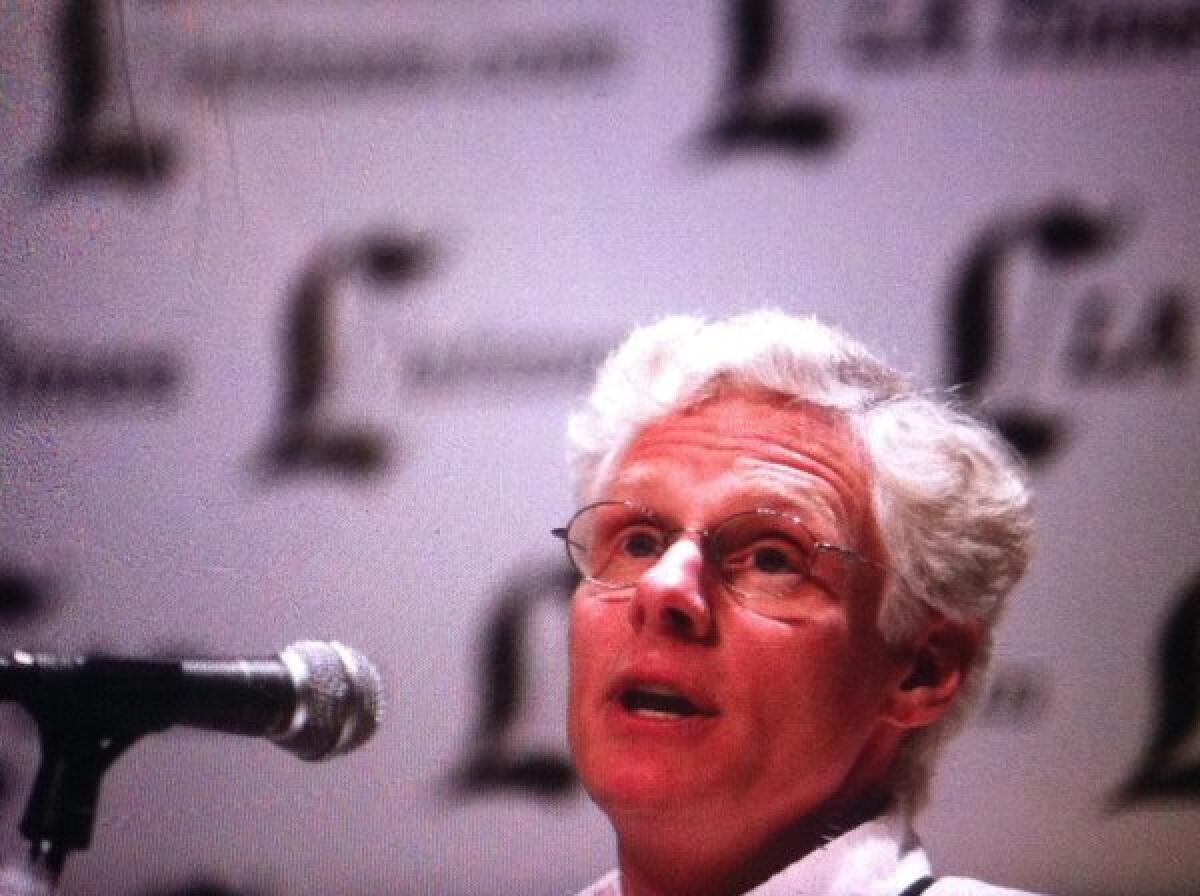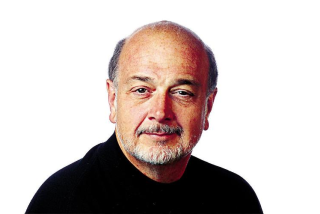Sportswriters discuss going beyond ‘hits, runs and errors’

Each day the sports pages teem with wins and losses, statistics and scores, victors and runners-up. But that’s not all.
“Sports don’t just have to be about touchdowns and three-point shots and goals,” said Los Angeles Times sportswriter David Wharton while moderating the panel discussion “Great Balls of Fire: Sports & Sports Writing” at the L.A. Times Festival of Books on Sunday morning. “We can find some real true things about life in what we see on the field.”
The three panelists in attendance -- Celia Walden, Steven Travers and John Rosengren -- shared Wharton’s philosophy.
FULL COVERAGE: FESTIVAL OF BOOKS
Walden is the author of “Babysitting George,” which chronicles the last days of British soccer icon George Best as he slowly drank himself into an early grave. Walden said she was not a soccer fan at the time she got the assignment, but that she found herself drawn into Best’s story, a dark testament to the fickle nature of fame.
“It was my first experience of a superstar, a global superstar,” Walden said, “and of celebrity and quite how harmful it could be.”
She added, “Partly what interested me with George was what that kind of adulation does to you as a person. With George, I think it destroyed him. He was completely unable to cope with the fact that he wasn’t an idol anymore.”
INTERACTIVE: LITERARY L.A. MAP
The subject of Travers’ latest book is another figure who showed that sports can reveal deeper truths about the world we live in. In “The Poet,” Travers explores the life and work of the legendary Times sports columnist Jim Murray.
The book was inspired by Murray’s column on the historic 1970 USC-Alabama football game, which marked the first time a fully integrated team played in Alabama. USC won handily, and college football in the South was never the same.
Travers said Murray’s approach to sportswriting was, “I will not write from the myopia of the press box. I will write about cities, I will write about my experience, I will write about the place I’m at.”
Travers also said, “I approached the biography of Jim from the standpoint that this is a social satirist, a man of social pathos.” In doing so, he said, he was able, like Murray, “to get beyond hits, runs and errors and talk about sports in the larger context of the society.”
Rosengren agreed that sports can hold a mirror up to society. “I’m always looking for the story behind the story,” he said, “especially a story of some social significance.”
In his biography, “Hank Greenberg: The Hero of Heroes,” Rosengren used the story of the 1930s Jewish baseball player to explore how issues of ethnic identity, anti-Semitism and American love for baseball intersected at the time.
“I think good sportswriting reveals more than just who wins or loses,” Rosengren added. “It reveals what’s won and lost.”
More to Read
Sign up for our Book Club newsletter
Get the latest news, events and more from the Los Angeles Times Book Club, and help us get L.A. reading and talking.
You may occasionally receive promotional content from the Los Angeles Times.










